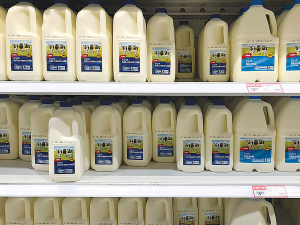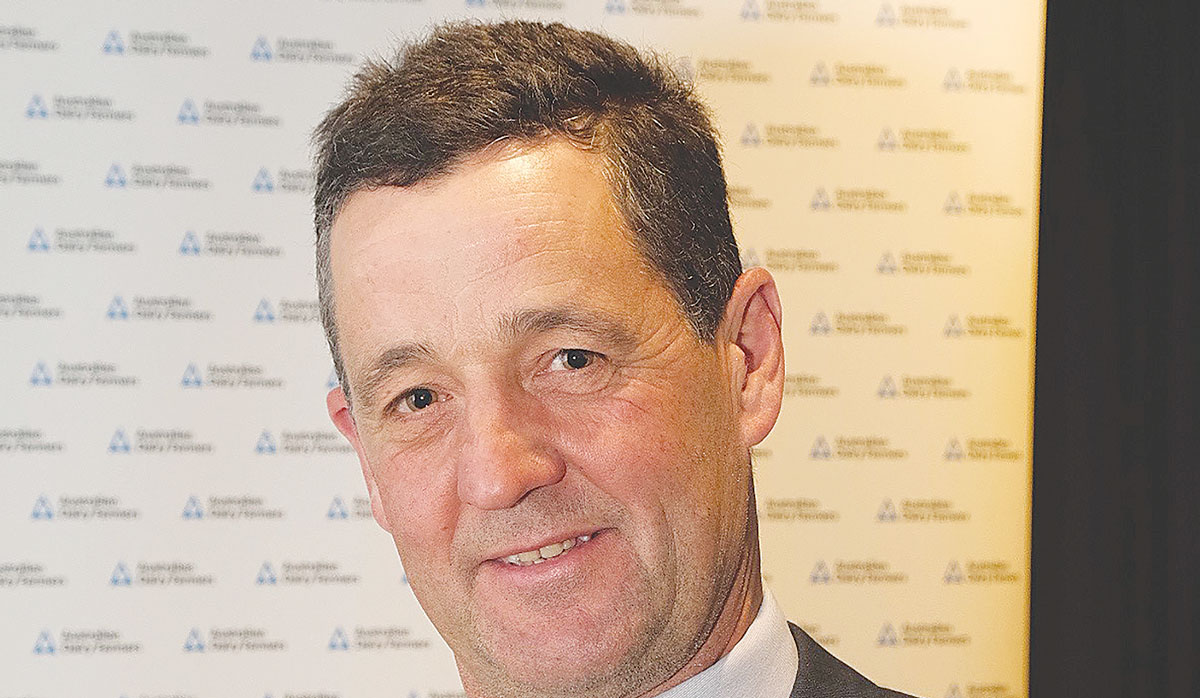Oz supermarket giant buys milk plants as supply concerns linger
Australian supermarket giant Coles' foray into milk processing is another sign of concern over milk security, says Australian dairy analyst Steve Spencer, Freshagenda.
 ADF president Rick Gladigau says farmers are unhappy with Coles getting the clearance to buy two milk plants.
ADF president Rick Gladigau says farmers are unhappy with Coles getting the clearance to buy two milk plants.
Australian supermarket giant Coles has been given the green light by the competition watchdog to buy two milk processing plants.
The decision by the Australian Competition and Consumer Commission (ACCC) has infuriated farmers, who worry that Coles will drive down the raw milk price paid to farmers.
Australian Dairy Farmers (ADF) president Rick Gladigau claims the decision will be a key turning point that the industry and ACCC will look back upon and regret.
ADF is concerned with the long-term ramifications, he adds.
"We hope that in 10 years' time we are not saying 'we told you so' like we have said about the impact of $1 litre milk that Coles started in 2011.
"We cannot see how this deal will result in anything but increasing Coles' already substantial market power, reducing market competition and market transparency, and increasing risk to farmers.
"We are especially disappointed in the missed opportunity to impose additional safeguards or undertakings on Coles.
"The ACCC has said that safeguards are already in place as Coles purchases of raw milk from farmers were covered by the mandatory Dairy Code of Conduct - yet we know processors have been lobbying the ACCC and government to have the code reviewed and watered down.
"The ACCC further stated that Coles' interactions with processors are also covered by the voluntary Food and Grocery Code of Conduct - yet we know the ACCC themselves recommended in the Perishable Agricultural Goods Inquiry that the voluntary Food and Grocery Code should be made mandatory for retailers and wholesalers."
Coles plans to buy two plants: at Erskine Park, New South Wales and Laverton, Victoria from Canadian dairy giant Saputo.
Coles and Saputo both currently get raw milk from dairy farmers in Victoria and NSW. Coles has its milk processed at the Erskine Park and Laverton plants by Saputo. After the acquisition, Saputo will have its raw milk processed by Coles at these facilities under similar arrangements.
In July this year, the ACCC called for submissions after identifying its preliminary concerns that the proposed acquisition may increase Coles' bargaining position in the dairy supply chain.
Concerns were also raised that the acquisition may change Saputo's incentives and result in it exiting the raw milk market in NSW, which would reduce the number of buyers of raw milk.
"We acknowledge the strong concerns raised by some dairy industry participants about Coles' acquisition of milk processing facilities," ACCC deputy chair Mick Keogh says.
"We explored the industry's concerns very closely through discussions with farmers and their representive bodies, and conducted a detailed review of Saputo and Coles' internal documents and their incentives.
 |
|---|
|
ADF president Rick Gladigau. |
"After careful consideration, we concluded that, compared with the current state of competition where the majority of the capacity at these facilities is already contracted to Coles, the acquisition is unlikely to result in a substantial lessening of competition in breach of section 50 of the Competition and Consumer Act."
Level Playing Field
The ACCC also looked closely at concerns that the acquisition would strengthen Coles' position in the dairy supply chain, and that it would give Coles the incentives and ability to adversely affect other processors.
"While we found that Coles may have an incentive to consolidate some of its milk volumes in the eastern states, this was unlikely to lead to a substantial lessening of competition," ACCC deputy chair Mick Keogh says.
"Coles will likely continue to face financial incentives to stock and support branded milk from other processors, due to the higher retail margins it earns on these products."
In addition, the ACCC found that Coles' commercial incentives to consolidate its milk supply would exist with or without the transaction due to the significant excess capacity at the Laverton and Erskine Park facilities.
The ACCC acknowledges that some stakeholders asked that conditions be imposed on Coles so its relationships with processors and farmers are effectively covered by existing industry behavioural codes.
The Meat Industry Association of New Zealand (MIA) today announced that Chief Executive Officer Sirma Karapeeva has resigned from the role.
The winners of the 2026 Hawke’s Bay/Wairarapa Dairy Industry Awards were announced at the annual awards dinner held at Copthorne Solway Park in Masterton on Thursday evening.
Environment Southland is welcoming this week’s decision by the Environmental Protection Authority (EPA) to approve the release of Blaptea elguetai, a leaf‑feeding beetle that will help control the highly invasive Chilean flame creeper.
This March, the potato industry is proudly celebrating International Women’s Day on 8 March alongside the International Year of the Woman Farmer, recognising the vital role women play across every part of the sector — from paddocks and packhouses to research, leadership, and innovation.
Fruit trader Seeka posted a record profit and returns to shareholders in 2025.
Recent weather events in the Bay of Plenty, Gisborne/Tairawhiti, and Canterbury have been declared a medium-scale adverse event.
OPINION: Staying with politics, with less than nine months to go before the general elections, there’s confusion in the Labour…
OPINION: Winston Peters' tirade against the free trade deal stitched with India may not be all political posturing by the…